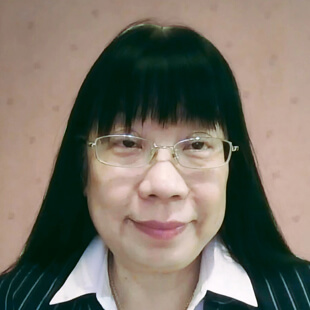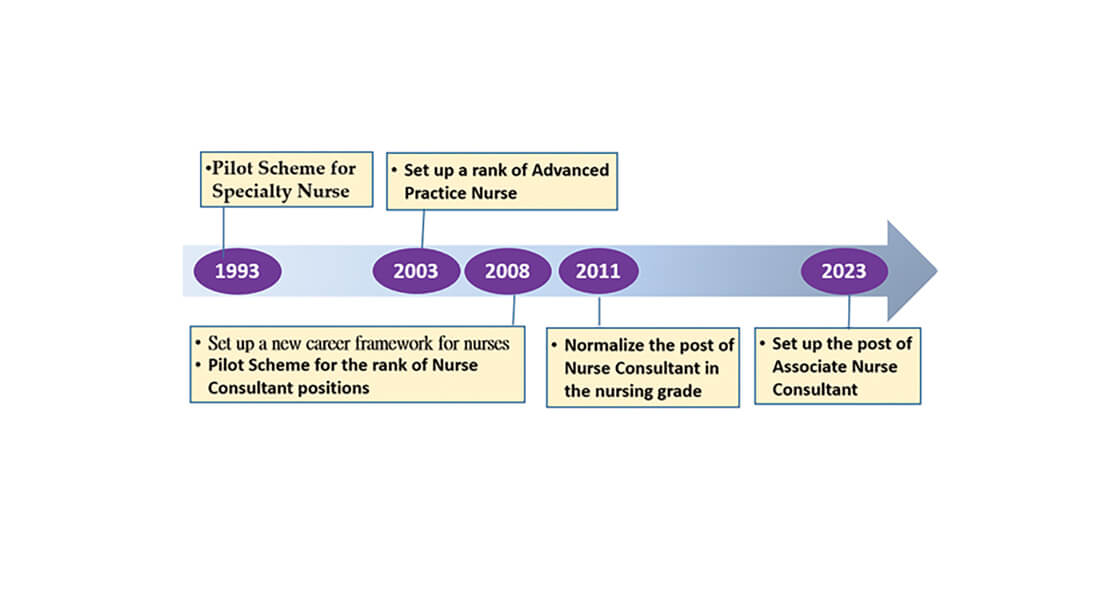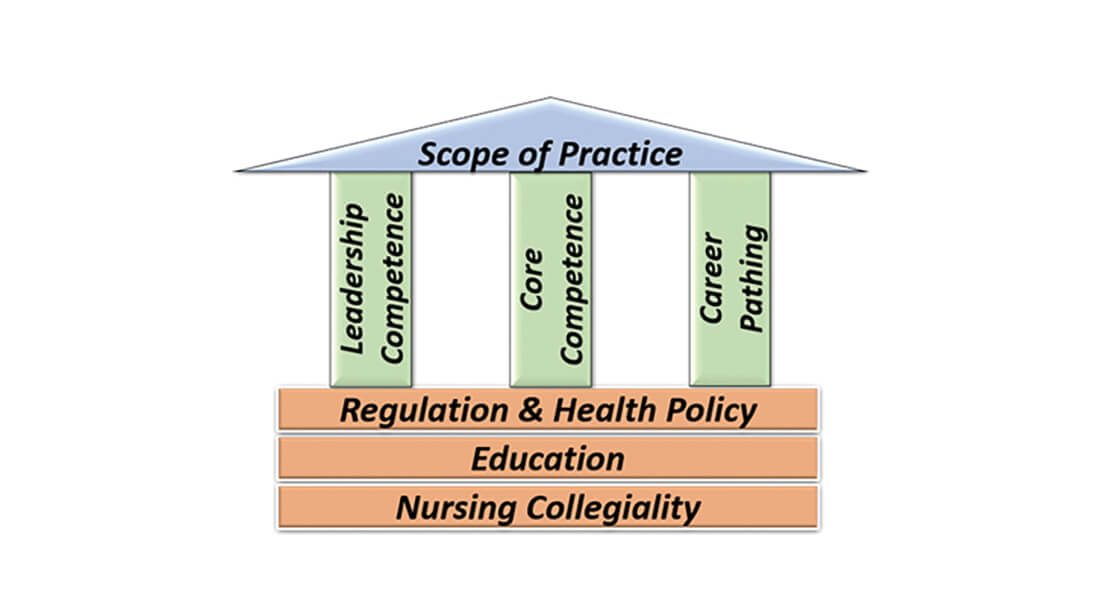
Clinical Excellence
Pioneering Nursing Excellence in the Greater Bay Area
Professor Sylvia Fung Yuk-kuen BBS |President, The Hong Kong Academy of Nursing & Midwifery
Healthcare delivery in the Greater Bay Area (GBA) faces major reform as the geographical boundary blurs in terms of residency and services consumption. A critical review of the strengths and deficiencies in the GBA is first needed, though, to ensure that rational planning, synergy and excellence prevail.
Geographic Opportunities
There is an unprecedented window of opportunities to advance nursing excellence in Hong Kong and our sister cities in the GBA. The region is large – covering 56,000 km2, with a population of 86 million and gross domestic product of RMB 14 trillion in 2023. Its size surpasses other well-known bay areas including San Francisco, New York and Tokyo. Moreover, the mass transit infrastructure is in place to facilitate social and services integration across the GBA. However, this accessibility still may not be adequate for citizens needing mobility assistance or an escort to reach medical services across cities.
Policy Support
“The Pilot Scheme for Supporting Patients of the Hospital Authority in the Guangdong-Hong Kong-Macao Greater Bay Area” was published in May 2023 and allows Hong Kong citizens to attend subsidised out-patient services in the HKU-Shenzhen Hospital, with more sites to be established in the GBA in years to come. The models of care in Hong Kong and other cities will inevitably be aligned to meet patients’ expectation.
Healthcare professionals, including nurses and midwives registered under the laws of Hong Kong, are allowed to provide short-term (up to a maximum of 3 years) services in the mainland under the “Mainland and Hong Kong Closer Economic Partnership Agreement (CEPA)”. Moreover, under the recent legislation amendment of the Nurses Registration Ordinance, non-locally trained nurses who are recruited by designated healthcare institutions can apply for special or limited registration in Hong Kong. Temporary registration is also provided for short terms (up to 2 weeks) for professional exchange and clinical placement.
Positive Outlook for Nurses
Quantitatively and qualitatively, the outlook is positive for the nursing workforce in the GBA, where there are many young people and new blood who can be recruited into the nursing profession. This could alleviate the nursing shortage. However, a strong magnet factor is needed to compete with the employment opportunities in other industry sectors. Hong Kong has a mature, professional advancement model for nursing (Figure 1), of a high global standard, which can offer such an enticement. Professional autonomy, self-governance and research-based innovations have been incorporated into our professional practice. Nurses have also overcome the restrictive boundary in clinical leadership to enhance comprehensive continuity of care across all settings and lifespans.
Our Challenges
Healthcare provisions and utilisation vary across the GBA, including but not limited to the reciprocity of registration, discrepancies in operations and funding models, transcultural differences in healthcare habits, ethics and moral principles, legal and regulatory requirements, and so on. Mutual respect and accommodation will be critical to a successful alignment of practice in the region and nursing development.
Ways Forward
To strengthen our capabilities, advance and excel in practice, and ensure accountability both professionally and to the public (Figure 2), we need to develop along 3 major pillars. First, the core competence of advanced practice must be clearly delineated as a yardstick to prepare our practitioners and measure performance. Second, career paths should be devised so that nurses can dedicate themselves to bedside clinical care. Third, nurse leaders must be nurtured with transformational capabilities for change and innovation. These elements are the fuel for sustainability and self-perpetuating development.
These 3 pillars can be strengthened and supported by 3 foundational building blocks. The first, fundamental cornerstone is nursing education. Tertiary education is indispensable to equip our future nurses with the capabilities to pursue excellence and advance patient care. Clinicians and academics must work collaboratively to nurture compassion in students and translate knowledge into innovations. The Vocational Qualification Framework of Hong Kong has a clear delineation of the outcomes at various levels of educational programmes.
The second building block is a self-governing regulatory framework, which is the crux for autonomy of the profession and accountability to the public. The “Voluntary Scheme on Advanced and Specialised Nursing Practice”, while needing further enforcement and refinement, is a powerful regulatory mechanism. By global standards, it is a visionary pioneering approach.
Lastly, the collegiality of nurses in the GBA can nurture a tripartite culture of commitment, compassion and caring and be a powerhouse for nursing development in the GBA. Nursing, as a family, will be instrumental in synergic collaboration.
Conclusion
The pursuit of excellence is an integral characteristic of nurses. There are many untapped resources and opportunities for nurses to capitalise on during this era of rapid change and looming unmet healthcare demands. Nursing remains the backbone in advancing the betterment of health.
The data in this story and further information can be found at the Hong Kong Government website www.bayarea.gov.hk and the Nursing Council of Hong Kong website www.nchk.org.hk






